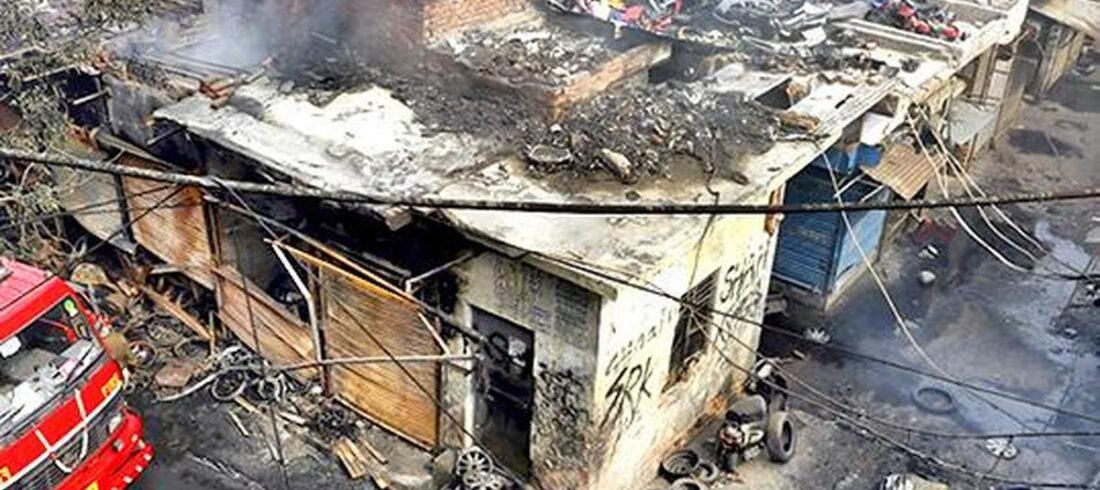After three days of the Red Fort car blast in India’s capital, New Delhi, the counterinsurgency forces in Jammu and Kashmir detonated the house of the elderly father of the alleged accused, Dr Umar Nabi, in South Kashmir – a region under prolonged military occupation.
Alongside Palestine, Kashmir represents one of the longest-standing cases of unlawful military occupation where the right to self-determination, enshrined in the UN Charter and affirmed by multiple Security Council resolutions, remains structurally denied.
The Gaza-pattern bombing of civilian properties in Kashmir is not a novel feature of Indian military operations. Instead, India is erasing the visibility of war crimes by reclassifying the international armed conflict over the disputed status of Jammu and Kashmir as a matter of internal security.
This strategic domesticisation facilitates India’s evasion of accountability under international criminal law for ‘atrocity crimes’ committed against a protected civilian population in Kashmir.
Escalating repression
Since India unilaterally revoked the semi-autonomous status of Jammu and Kashmir in 2019 and illegally annexed the territory in defiance of binding UN Security Council resolutions, the Kashmiri population has been subjected to escalating repression. Arbitrary detentions, communication blackouts, and a suffocating politics of fear have become instruments of governance.
Dissent now risks not only imprisonment but also the demolition of family homes and property confiscation under draconian laws like the Unlawful Activities (Prevention) Act (UAPA), which criminalises political expression.
Related
Erasure of humanitarian laws
The systematic denial of international humanitarian law (IHL) protections in Indian-administered Kashmir has severely undermined the legitimacy and legal framing of its freedom struggle. IHL, unlike other domains of international law, offers precise, codified protections, especially in contexts of military occupation and civilian vulnerability.
Its selective suspension in Kashmir has enabled India to reframe an internationally recognised occupation into an internal law-and-order issue, allowing it to bypass the legal obligations arising under the Geneva Conventions.
Without an explicit international acknowledgement of Kashmir as a situation of occupation governed by IHL, India has constructed an alternative narrative rooted in national sovereignty, thereby shielding its conduct from international legal scrutiny.
Between 2020 and 2024, civil society investigations, including those from the Jammu and Kashmir Coalition of Civil Society (JKCCS), headed by incarcerated Award-winning human rights activist Khuram Parvez and the Legal Forum for Kashmir (LFK), documented the partial or total destruction of at least 1,172 civilian houses.
These demolitions, conducted jointly by the Indian army and counterinsurgency police, were carried out under the pretext of military operations targeting residential and commercial properties of Kashmiri men accused of taking up arms against New Delhi.
Collective punishment and hyper legalism
In April 2025, following an attack on tourists in Pahalgam, Indian forces demolished at least 10-12 houses belonging to the relatives of suspected militants, either those detained as undertrial prisoners or residing across the Line of Control in Pakistan-administered Kashmir, further institutionalising a policy of collective punishment in clear violation of international law.
In a brazen display of institutional complicity in collective punishment, members of the parliament (Lok Sabah) publicly defended the punitive demolition of civilian homes in Kashmir.
In response to MP Aga Ruhullah’s objection, a Rajya Sabha member declared: “There is no harm in bombing civilian homes in Kashmir.” Such statements reflect not only political impunity but also an attempt to legitimise grave breaches of international humanitarian law.
Despite a binding judgment of the Indian Supreme Court on November 13, 2024, mandating a 15-day notice prior to any demolition, the armed forces in Kashmir have continued to raze civilian homes without judicial oversight or procedural due process. These demolitions proceed without trial, conviction, or even a formal accusation, bypassing the most minimal safeguards enshrined in Indian law.
Crucially, neither the Indian Penal Code nor its successor, the Bharatiya Nyaya Sanhita, contains any substantive provision authorising the punitive destruction of civilian property. The weaponisation of demolition powers, absent any legal basis, demonstrates the deep architecture of hyper-legalism, a regime in which law is deployed not to restrain state violence but to rationalise enduring states of exception.
In Kashmir, this hyper‑legalism is undergirded by an apparatus of repressive legal instruments, principally the Armed Forces Special Powers Act (AFSPA), Jammu and Kashmir Public Safety Act (PSA), Enemy Agents Ordinance Act and the Disturbed Areas Act. These frameworks do not merely fail to offer protection to the civilian population; they actively construct Kashmiris as persons stripped of protected civilian status under international humanitarian law.
They institutionalise impunity and enable Indian armed forces to operate beyond the reach of independent adjudicatory scrutiny. As repeatedly underscored by the UN OHCHR and leading rights organisations, these “created structures obstruct the normal course of law, impede accountability, and jeopardise the right to remedy for victims.”




